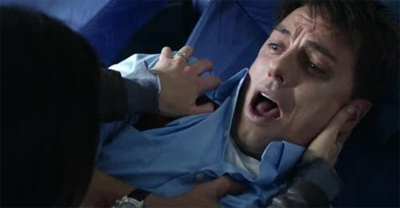I published a new In the Frame piece at The Escapist this evening. With the looming release of Luther: The Fallen Sun, it seemed like a good opportunity to talk about the show. In particular, the interesting space that it occupies as a police procedural that arguably owes more to comic books than anything else.
Luther is a fascinating show. It is ostensibly something similiar to Law & Order or CSI, the story of a detective who works grim and sensationalist crimes to their conclusions. In practice, however, Luther is something altogether more heightened. It occasionally veers over into outright horror, and Luther himself often seems to face characters more like comic book supervillains than ordinary criminals. The result is fascinating, a show that arguably feels closer to a certain strand of comic book storytelling than any of the actual comic book shows out there.
You can read the piece here, or click the picture below.
Filed under: Television | Tagged: bbc, comic books, constantine, john luther, luther, netflix, police procedural, superheroes | Leave a comment »

































